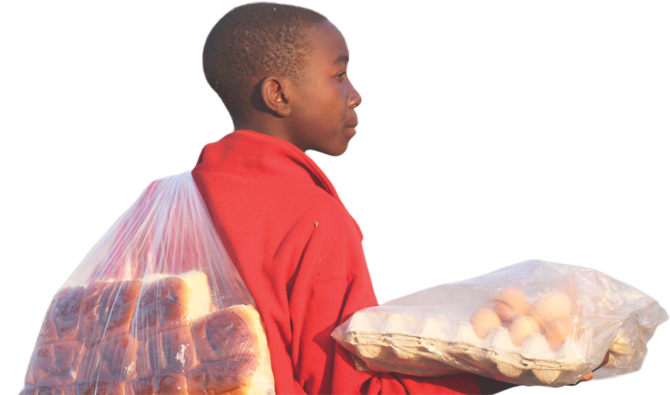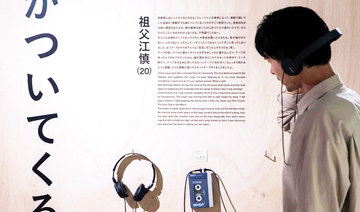RIYADH: In the field of attracting global talent, Saudi Arabia stands out as a hub of innovation and opportunity, recruiting skilled professionals from all over the world to drive growth in key sectors including technology, finance, and manufacturing.
With a strong focus on talent development and labor market improvements, initiatives such as the Premium Residency program represent an important step in transforming the Kingdom’s workforce.
More than 2,600 healthcare workers became beneficiaries of this scheme, dubbed the Saudi Green Card, in October – a clear sign that the Kingdom is proactively working to secure international talent within the country’s borders
How Saudi Green Card is reshaping landscape for global talent attraction in Saudi Arabia
Launched in 2021, the Premium Residency program offers long-term residency to skilled workers, entrepreneurs, and investors to create a more competitive environment for top professionals.
It offers expats access to benefits available to Saudi nationals, including the ability to own property, start businesses, and make use of public services.

Raymond Khoury, partner and public sector practice lead, at Arthur D. Little, Middle East, believes the program will positively impact key sectors by attracting the talent needed to service the growing population — set to rise from 34.4 million today to 55 million by 2030.
“Such incentives allow skilled professionals to have a more stable personal life environment with their families and the facility to make long-term investments in their careers – a better work-life balance in general,” Khoury told Arab News.
The Arthur D. Little partner went on to note that attracting skilled professionals in sectors like healthcare, technology, tourism, and renewable energy will help diversify Saudi Arabia’s economy, reduce oil dependency, and boost gross domestic product through innovation and strategic partnerships in non-oil industries.
“The program also facilitates international professionals in academia and research, allowing for stronger collaborations between universities and private institutions in Saudi Arabia and their international counterparts,” he said.
Khoury added that while the initiative does face challenges, such as the time it takes for international talent to adapt to local cultural and legal norms, these can be mitigated by providing clear integration pathways and support for newcomers.

The international talent infusion not only accelerates progress within key sectors but also drives cultural and intellectual exchange, fostering long-term growth and innovation.
Raymond Khoury, Partner and public sector practice lead at Arthur D. Little, Middle East
While Saudi Arabia has this program, its Gulf Cooperation Council neighbors, such as UAE and Qatar, have their own talent attraction schemes in place, meaning there is competition for skilled professionals, Khoury explained. Abhishek Sharma, partner at Oliver Wyman’s Government and Public Institutions practice for India, Middle East and Africa, said the Kingdom’s Premium Residency program is transforming the expatriate model by attracting highly skilled professionals.
“Given the Kingdom’s large-scale economic ambitions and the significant opportunities emerging across various sectors, these factors collectively position Saudi Arabia as an increasingly attractive destination for global talent,” Sharma told Arab News.
The Saudi Green Card is improving talent mobility especially in technology, by allowing professionals to work and live without a sponsor, he added.
This supports Vision 2030’s goal of making Saudi Arabia an innovation hub, and boosts technological growth in sectors like artificial intelligence and digital transformation, according to Mamdouh Al-Doubayan, managing director of Middle East and North Africa at Globant.
“However, while attracting global talent is crucial, sustainable growth depends on balancing international expertise with local knowledge development. The real opportunity lies not just in recruitment but in fostering a dynamic, homegrown workforce capable of driving long-term digital adoption,” Al-Doubayan told Arab News.
International talent influx
The influx of international talent is vital for advancing key sectors in Saudi Arabia, such as technology, healthcare, tourism, and renewable energy — all of which support Vision 2030’s goal of reducing oil dependence and fostering a sustainable, knowledge-based economy.
Khoury believes innovation and technology advancement across core and adjacent sectors is critical in creating innovation hubs and driving the digital transformation of industries.
“This also covers supporting technology research, development and innovation startups and an encompassing ecosystem that fosters knowledge transfer and international collaboration,” he said.
Healthcare was raised as an area where attracting skilled medical professionals — doctors, nurses, and researchers — can effectively and efficiently improve patient outcomes, introduce advanced medical practices, and lead groundbreaking research.

By incentivizing industries that rely on highly skilled professionals, Saudi Arabia can accelerate sectoral growth and enhance its overall economic contribution.
Abhishek Sharma, Partner at Oliver Wyman’s Government and Public Institutions practice
“Establishing the Kingdom as an attractive medical tourist destination is part and parcel of some mega-projects — for example the Red Sea project — today under Vision 2030,” Khoury said.
The Arthur D. Little partner also highlighted that improving the education sector in Saudi Arabia is essential for building a knowledge-based economy, particularly in STEM fields.
Attracting international talent in tourism, hospitality management, event planning and arts development is key for Saudi Arabia, particularly for destinations such as Qiddiya and the Red Sea project, where the target is to attract and service between 60 million and 70 million visitors per year by 2030.
“Such a large target requires domain knowledge of global trends and international best practices, which international talent can bring in a timely manner,” Khoury said.
He also flagged the need for international expertise in green technologies as being crucial for Saudi Arabia’s Vision 2030, especially in renewable energy. Global partnerships and innovative solutions will aid in achieving net-zero emissions, optimizing energy efficiency, and creating sustainable business models.
“The international talent infusion therefore not only accelerates progress within key sectors but also drives cultural and intellectual exchange, fostering long-term growth and innovation for the Kingdom,” Khoury said.
Knowledge economy
From Oliver Wyman’s side, Sharma explained that human capital is a key driver of economic growth, with skilled professionals fostering expansion, which in turn attracts more talent. Saudi Arabia is set to experience this positive cycle over the next seven to 10 years.
“As the Kingdom advances toward its Vision 2030 goals, transitioning to a knowledge-based economy, improving the overall quality, skill level, and productivity of the workforce will be critical. By incentivizing industries that rely on highly skilled professionals — such as professional services, technology, and advanced manufacturing — Saudi Arabia can accelerate sectoral growth and enhance its overall economic contribution,” he said.

While attracting global talent is crucial, sustainable growth depends on balancing international expertise with local knowledge development.
Mamdouh Al-Doubayan, Managing director of Middle East and North Africa at Globant
According to Al-Doubayan from Globant, international talent is crucial to the Kingdom’s shift toward a knowledge-based economy, bringing specialized skills and innovative approaches, particularly in technology.
Collaborating with local professionals drives progress, supports Vision 2030’s goals of economic diversification, and enhances competitiveness in a digital, AI-driven world.
“By integrating global expertise with local capabilities, Saudi Arabia is not only strengthening its workforce but also creating an environment where homegrown talent can thrive. The impact goes beyond immediate job creation — it builds a long-term, self-sustaining innovation ecosystem that reduces reliance on traditional industries and positions the Kingdom as a leader in digital transformation,” he said.
Future strategies
As Saudi Arabia aims to become a global hub for business, technology, and culture through Vision 2030, the ongoing influx of international talent will play a crucial role in driving economic growth and fostering innovation.
Arthur D. Little’s Khoury believes that enhancing immigration policies, including expanding programs like the Saudi Green Card, could see tailored benefits being offered to professionals in sectors such as renewable energy, AI, and biotech, as well as healthcare and fintech, providing long-term opportunities.
He explained that availing and advancing innovation hubs and ecosystems in support of attracting and retaining tech entrepreneurs, researchers, and innovators, is vital, as is offering them not only business opportunities but also a platform to collaborate with global experts in their fields.
“This is a key focus of the Saudi Research Development and Innovation Authority in its aim to bolster RDI capabilities and create a compelling environment for leading scientists, engineers, and researchers,” Khoury said.
He added that the government is boosting investments in incubators, accelerators, and venture capital to support local and international startups, aiming to create a diverse innovation ecosystem and foster new tech-driven industries.
Additionally, the partner explained how the Kingdom’s investment in education and upskilling initiatives to build a knowledge-based economy, focusing on attracting international students and researchers while pairing global talent with local professionals, will enhance expertise.
“Having a skilled and diverse workforce will better enable Saudi Arabia to effectively compete on the international stage and attract more high-value investments that will spur further economic development and prosperity,” Khoury said.
Oliver Wyman’s Sharma highlighted attracting top talent is key to the Kingdom’s goal of becoming a global leader in AI.
He said that a parallel strategy of aggressively upskilling the local workforce will be “equally critical” in sustaining long-term economic and innovation-driven growth.
Al-Doubayan from Globant explained with growing demand for skilled professionals in technology, entertainment, and sustainability, organizations must offer not just jobs but upskilling, career development, and innovation-driven environments to position the Kingdom as a long-term career destination.
He said: “The increasing integration of AI across industries is intensifying competition for top talent. Organizations now face a paradigm shift: moving from simply retaining talent to empowering professionals to grow, innovate, and remain engaged within the Kingdom’s evolving workforce. The key challenge is no longer just recruitment — it is creating an environment where individuals choose to stay despite global demand for elite professionals.”






























